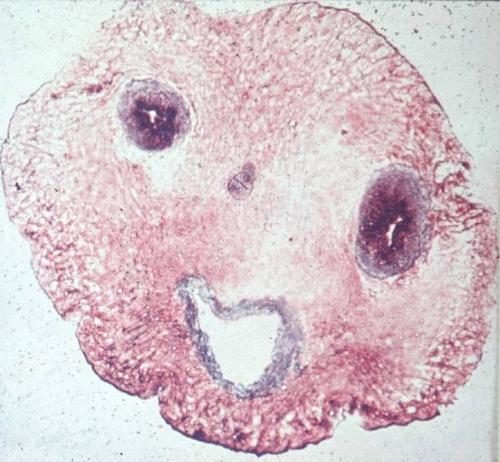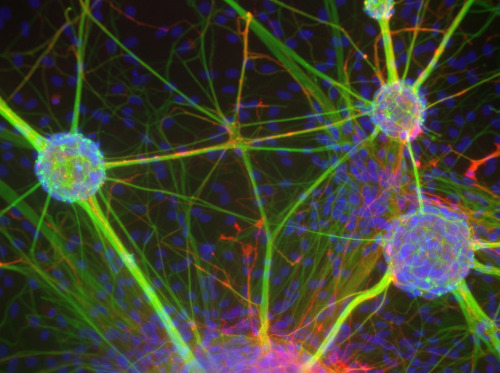Dopamine model could play role in treating schizophrenia and drug addiction
In the brain, dopamine is involved in a number of processes that control the way we behave. If an action results in the substance being released, we are more likely to repeat the action. This applies to actions such as eating, sexual intercourse or winning a competition. However, the same also holds true when individuals take harmful narcotics. Scientists believe that mental illnesses such as schizophrenia can be linked to dopamine imbalances. Дальше на http://www.eurekalert.org/pub_releases/2010-10/uoc-dmc102010.php
Montreal, October 20, 2010 – Daily sleeping and eating patterns are critical to human well-being and health. Now, a new study from Concordia University has demonstrated how the brain chemical dopamine regulates these cycles by altering the activity of the "clock-protein" PER2. Published in the Journal of Neuroscience, these findings may have implications for individuals with Parkinson's Disease with disrupted 24-hour rhythms of activity and sleep. Дальше http://www.eurekalert.org/pub_releases/2010-10/cu-nro102010.php
SEATTLE, Wash. — October 18, 2010 — Researchers at the Allen Institute for Brain Science have found that the same genes have different activity patterns in the brain in individuals with different genetic backgrounds. These findings may help to explain individual differences in the effectiveness and side-effect profiles of therapeutic drugs and thus have implications for personalized medicine. The study is available in this week’s online early edition of the Proceedings of the National Academy of Sciences Дальше http://scienceblog.com/39433/gene-activity-in-the-brain-depends-on-genetic-background/?utm_source=feedburner&utm_medium=feed&utm_campaign=Feed%3A+scienceblogrssfeed+%28Science+Blog%29
Sensation seeking—the urge to do exciting things—has been linked to dopamine, a chemical that carries messages in your brain. For a new study published in Psychological Science, a journal of the Association for Psychological Science, scientists analyzed genes in the dopamine system and found a group of mutations that help predict whether someone is inclined toward sensation seeking. Дальше http://scienceblog.com/39121/a-thirst-for-excitement-is-hidden-in-your-genes/?utm_source=feedburner&utm_medium=feed&utm_campaign=Feed%3A+scienceblogrssfeed+%28Science+Blog%29
Glutamate and dopamine: Biological predictors of the transition to psychosis?
Philadelphia, PA, 30 September, 2010 - There is growing evidence that two neurotransmitters - dopamine and glutamate - are abnormal in people with psychotic illness, including schizophrenia. Among many other things, these chemicals play a role in cognitive functions, such as memory, learning, and problem-solving
A new study in Biological Psychiatry is now the first to examine the relationship between these two brain chemicals by measuring both in the same individuals. http://www.eurekalert.org/pub_releases/2010-09/e-gd093010.php
There’s a predictable narrative to a lot of discoveries in molecular biology. The story begins when a scientist discovers that Molecule X causes Phenomenon Y. Perhaps we’re talking about CREB and long-term memory, or serotonin and depression, or cholesterol and heart disease. At first, the data looks really solid – when the gene for Molecule X is knocked out of a mouse, Phenomenon Y disappears! And when patients take a drug that increases/reduces Molecule X, you get a change in Phenomenon Y! The causal relationship seems so simple.
And that’s when things start to get complicated. Time and time again, the neat relationship between Molecule X and Phenomenon Y disintegrates into a knot of feedback loops, enzymatic pathways, environmental interactions and regulatory genes. It’s not that Molecule X doesn’t matter – it’s that it doesn’t exist by itself. Instead, the Molecule exerts its effects by interacting with a byzantine list of other molecules, all of which can also influence the biological outcome. Read More http://www.wired.com/wiredscience/2010/08/sex-is-stressful-but-good-for-you/?utm_source=feedburner&utm_medium=feed&utm_campaign=Feed%3A+wiredscience+%28Blog+-+Wired+Science%29
04.11.2010
Ряд новых интересностей о допамине :)
Подписаться на:
Комментарии к сообщению (Atom)











0 +:
Dí lo que piensas...